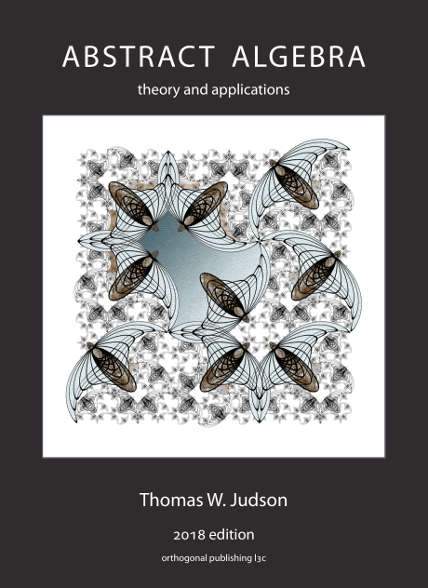Example 8.23.
Consider the set of nonzero real numbers, \({\mathbb R}^\times\text{,}\) with the group operation of multiplication. The identity of this group is \(1\) and the inverse of any element \(a \in {\mathbb R}^\times\) is just \(1/a\text{.}\) We will show that
\begin{equation*}
{\mathbb Q}^\times = \{ p/q : p \, \text{and}\, q\, \text{are nonzero integers} \}
\end{equation*}
is a subgroup of \({\mathbb R}^\times\text{.}\) The identity of \({\mathbb R}^\times\) is \(1\text{;}\) however, \(1 = 1/1\) is the quotient of two nonzero integers. Hence, the identity of \({\mathbb R}^\times\) is in \({\mathbb Q}^\times\text{.}\) Given two elements in \({\mathbb Q}^\times\text{,}\) say \(p/q\) and \(r/s\text{,}\) their product \(pr/qs\) is also in \({\mathbb Q}^\times\text{.}\) The inverse of any element \(p/q \in {\mathbb Q}^\times\) is again in \({\mathbb Q}^\times\) since \((p/q)^{-1} = q/p\text{.}\) Since multiplication in \({\mathbb R}^\times\) is associative, multiplication in \({\mathbb Q}^\times\) is associative.

